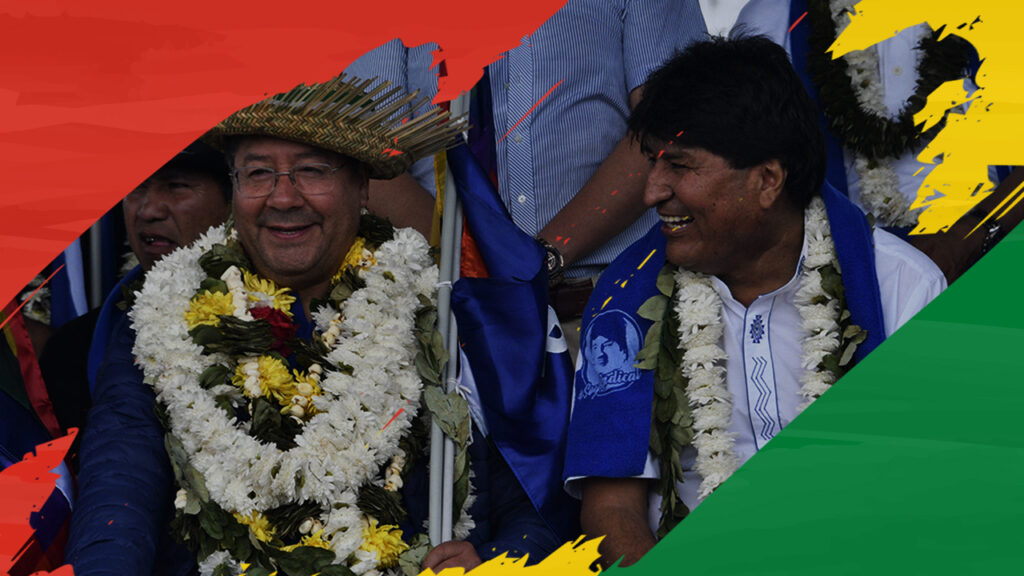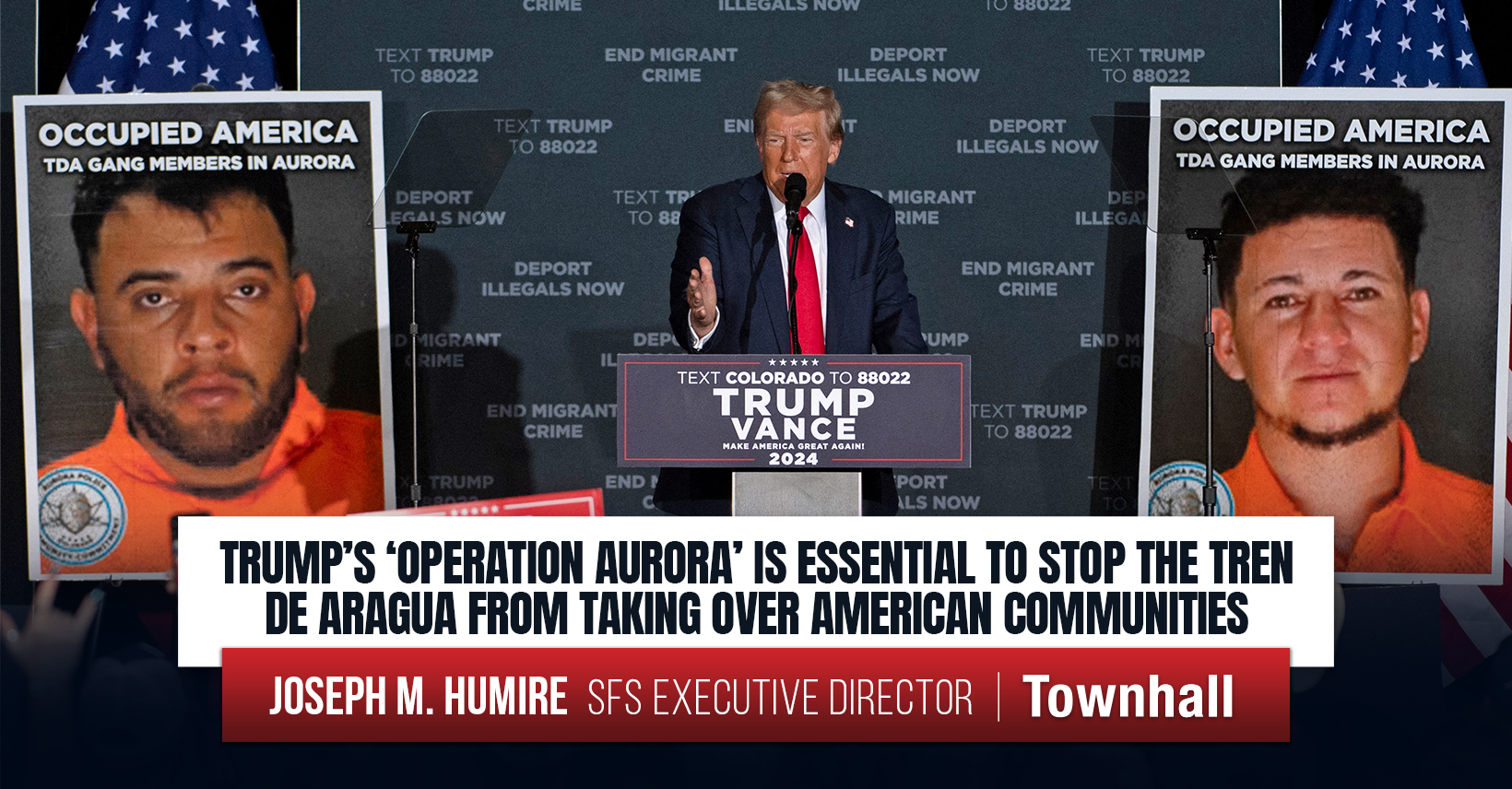Bolivia is experiencing one of its worst financial crises in modern history. Its international reserves are the lowest they’ve been in 15 years and government bonds have the worst yields in 5 years.
But for everyday Bolivians, it’s the line that stretches for two blocks outside the Central Bank in La Paz that has them worried as they scramble to get access to the greenbacks.
The Central Bank is so depleted of U.S. dollars that their latest report suggests that Bolivia only has enough cash on hand to cover two weeks of imports.
The shortage of U.S. dollars has provoked the Luis Arce government to start to seek revenue from other sources. He’s turned to the elderly in Bolivia by beginning an assault on their pensions. In late March, President Arce announced the appropriation of the resources of the Pension Fund Administrators (AFP).
For most onlookers this seems like another underdeveloped country on the brink of economic collapse. But for the astute analyst of recent Latin American history, this could be a deliberate economic crisis to induce radical changes in the country. For precedent, look no further than Venezuela.
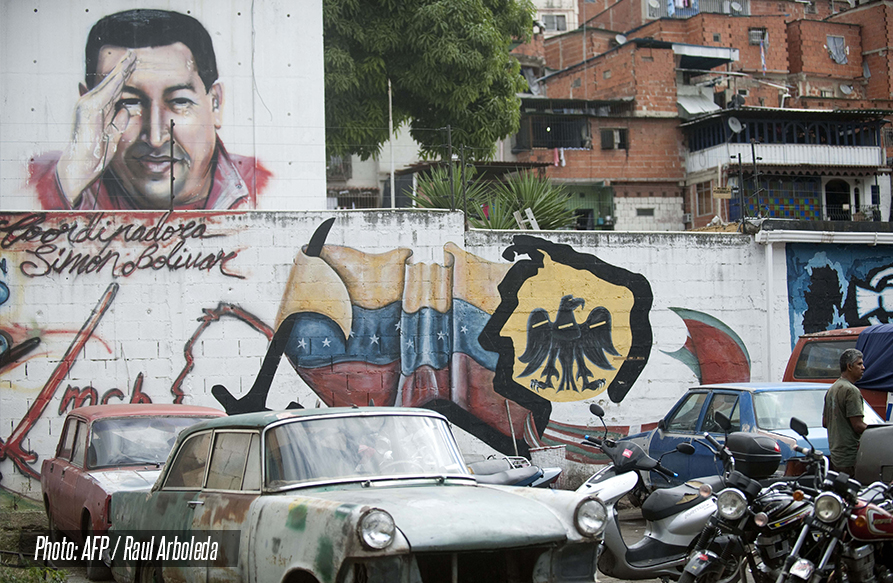
In 2014, one year after the passing of Hugo Chávez, Venezuela began to experience the worst financial crisis in its history. Inflation hit double digits and consumer prices rose between 5 to 7 percent. Coupled with the severe mismanagement of its oil industry and massive corruption, Venezuela began an economic collapse that spurred the worst humanitarian and migrant crisis in the Western Hemisphere.
But instead of weakening the authoritarian control of the Chavista regime, Venezuela’s economic crisis provided an opportunity for the regime to advance its Bolivarian revolution by weaponizing migration, amplifying robust disinformation, and strengthening ties to other authoritarian regimes in Russia, Iran, and China.
The question must be asked if this authoritarian playbook is being repeated in Bolivia, a strong ally of Venezuela.
Last month, Bolivian President Luis Arce, along with former President Evo Morales traveled to Caracas, Venezuela, for the 10th anniversary of the death of Hugo Chávez. At the ceremony Evo Morales called Hugo Chavez a “a soul brother, fighting pal and great revolutionary.” Meanwhile, President Arce said about Hugo Chávez that he “has opened our eyes to … the construction of a new society … where the revolutionaries, the socialists, are not [merely] an idea, but a reality that …. builds a great homeland for all Latin Americans.”
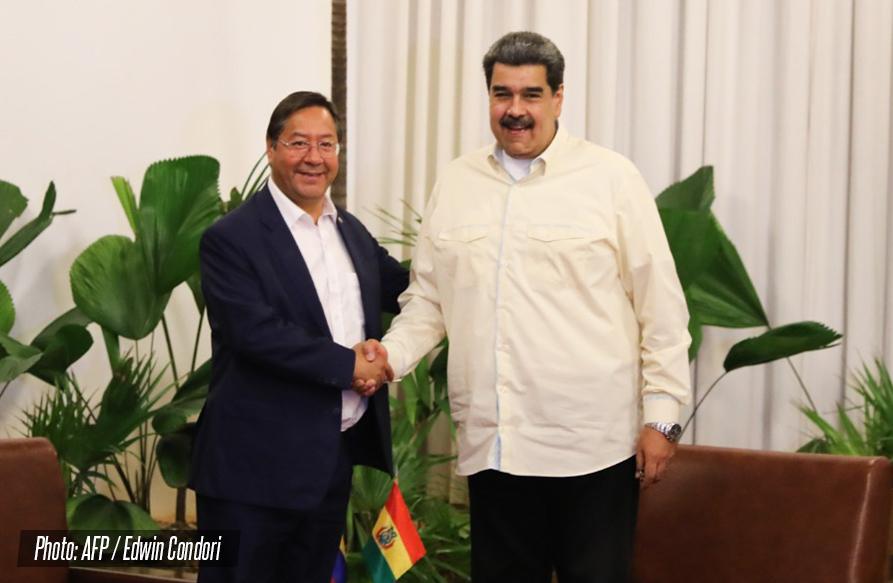
Back in Bolivia, the shortage of U.S. dollars was just beginning. With the financial crisis looming, Luis Arce called for a joint Latin America lithium policy that would “unite the market, in a sovereign manner, with prices that benefit our economies, and one of the ways, already proposed by [Mexico’s] President Andres Manuel Lopez Obrador, is to think of a kind of lithium OPEC,” he said in a speech in La Paz. Two months earlier, Arce’s government signed a $1 billion deal with three Chinese firms to explore lithium deposits in Bolivia, the largest in the world.
This comes as Beijing’s diplomatic offensive against the U.S. dollar has begun with non-dollar-denominated trade agreements with Brazil, Saudi Arabia, the UAE, and others in the works. Given that Brazil is Bolivia’s largest trade partner and China its biggest creditor, it’s plausible that the Arce government could capitalize on the dollar shortage and financial crisis to bring Bolivia more under China’s control.
Currency swaps or monetary shenanigans are not solutions to the economic woes of Bolivia. The financial crisis is a very serious situation in the Andean country and the first consequence will likely be mass migration.
Scarcity, famine, and fear are tools that have been successfully used since imperial times to keep a populace subjugated. Today the advent of 21st century socialism has changed the actors, but the method, successful as it was, stays the same.
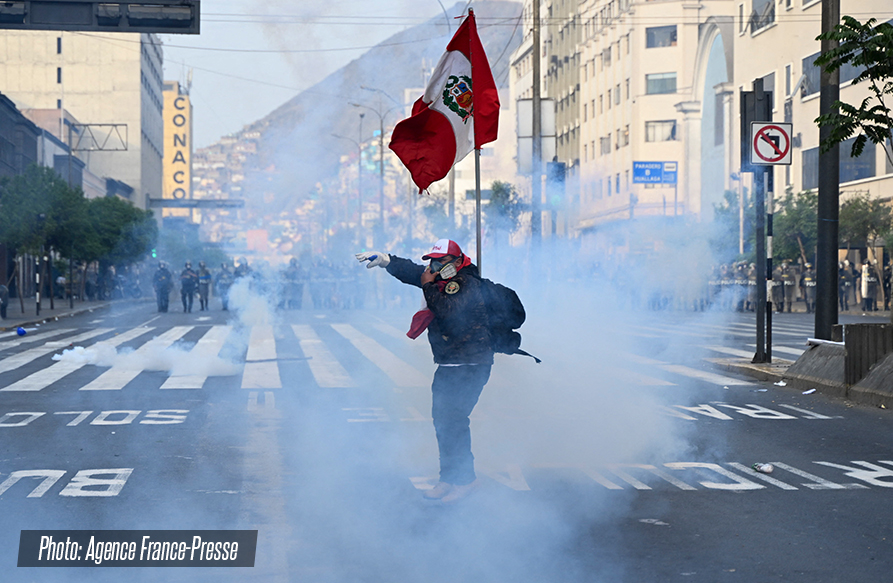
Being suspicious about the “failed” economic policies of Bolivian President Luis Arce, is reasonable, based on what happened in Venezuela. Likewise, when we look at the systematically poor handling of the pandemic by a corrupt Peruvian government, this was the precept to the deadly riots orchestrated by separatist movements in the southern part of the country. Subversive actions that the Peruvian Congress has, in part, blamed Bolivia’s Evo Morales for instigating.
If the Bolivian regime can use subversive actions that capitalize on failed policies in neighboring Peru, there is no reason to believe it wouldn’t do so at home.
At the end of the day, political and economic systems are only as resilient as the political leaders willing to defend them. Absent that, when the system collapses it prompts the necessary conditions for the installation of “The Bolivarian Model” as we have seen in Venezuela and what they are trying to do in Peru.
This is not a model of a failed regime but rather a failing system that strengthens the regime by allowing it to catalyze internal conflict. Which, in turn, could be the strategic objective of the regime in the first place or at least of its extra-regional benefactors: China, Russia, and Iran.
Dardo López-Dolz is a Senior Fellow at the Center for a Secure Free Society and former vice minister of interior in Peru. He is the president of PKS Consultores and a research fellow for the Centro de Innovación para Políticas Públicas (CIPP-Peru), based in Lima.
The information published in this article does not necessarily reflect the policies or positions of SFS.

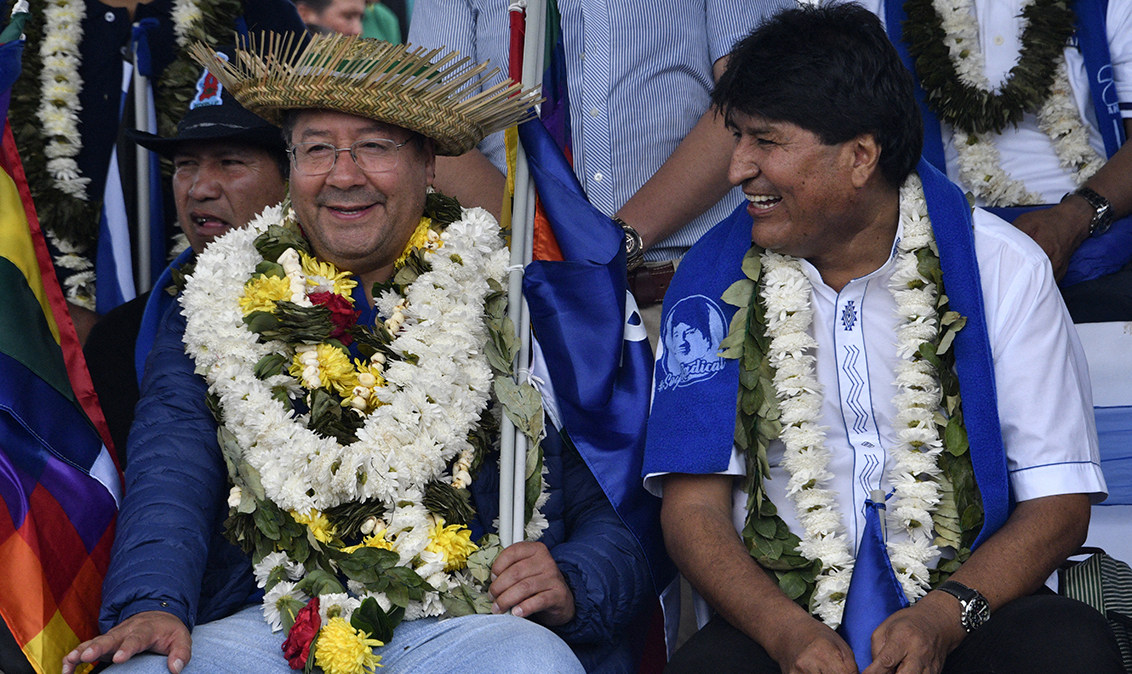
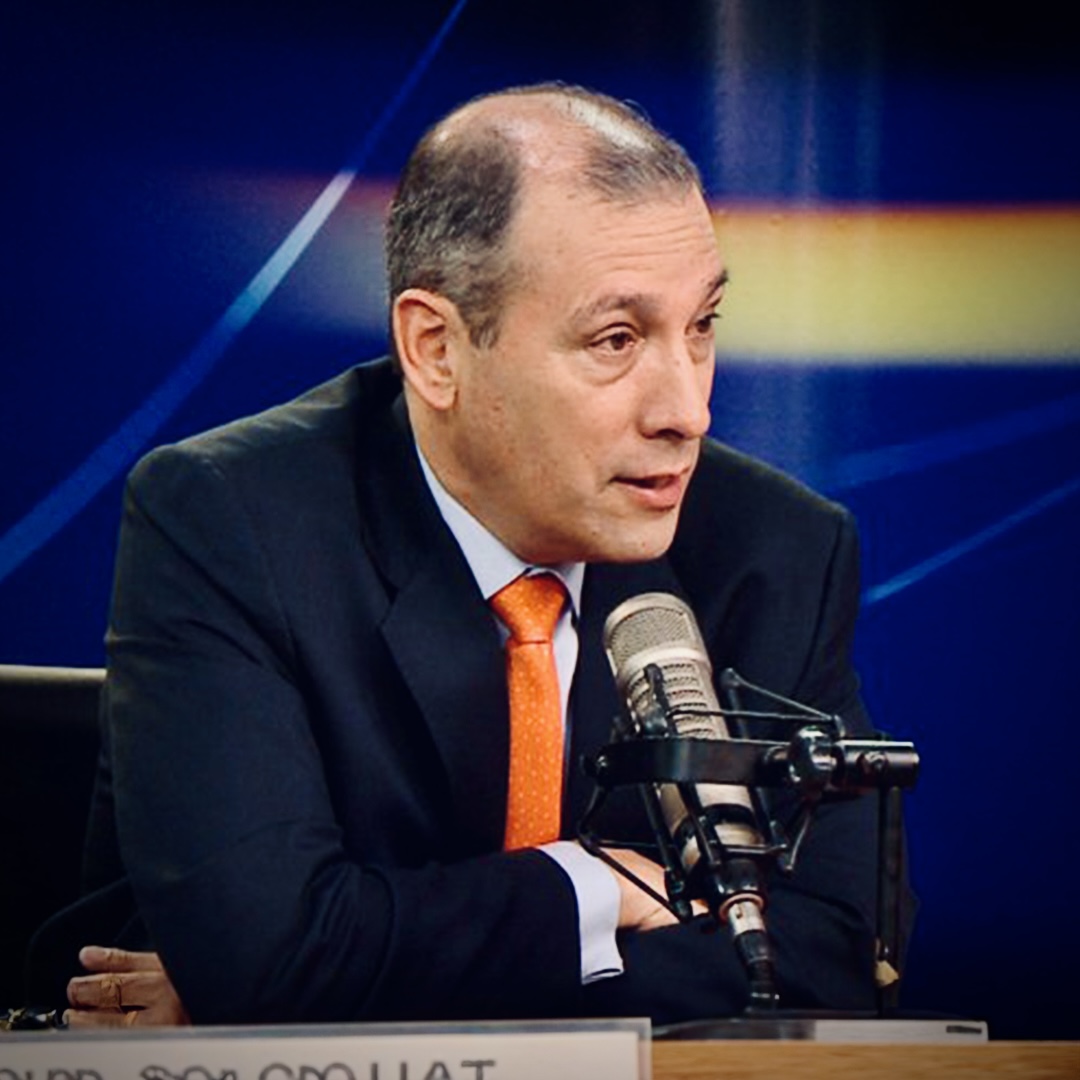 Dardo López-Dolz
Dardo López-Dolz